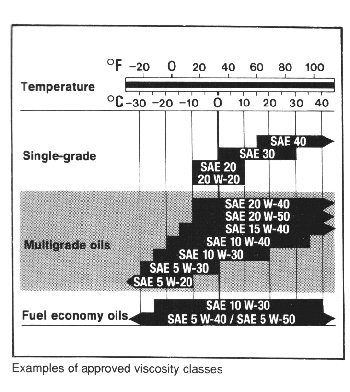ORIGINAL: knightma
.... I'm about to use Mobil 1 0W-40 in my 944, so I'll see how that goes. For me the most important factor is the 0W. The majority of engine wear occurs on start up for the first few revs before the oil has circulated, the lower the cold temperature viscosity is, the quicker it will circulate and begin to protect.
No don't! See my note above. 0w is too light for the type of seals employed on our old technology cars and will start leaks.
Multi grade oils (those noted as 0w/40, 10w/60) are rated as follows:-
eg 15w/50
15w means this oil will have the same viscosity as a 15 weight oil when it is cold (ie a 15 weigh is quite thin but obviously thicker when cold but not as thick as a 50 weight when cold)
/50 means the oil will have the same viscosity as a 50 weight oil when hot
Now because multi grade is less viscous when hot we can assume that hot 50 is thinner than cold 15 for example. But is hot 50 less viscous than cold 0 ?
Also, when the engine is working it is nice and hot so everything is bigger and there is pressure pushing seals closed. When it is cold, and not running. the tolerances on the seals are much bigger (and they aren't pressurised) so thin oil can escape around them.










